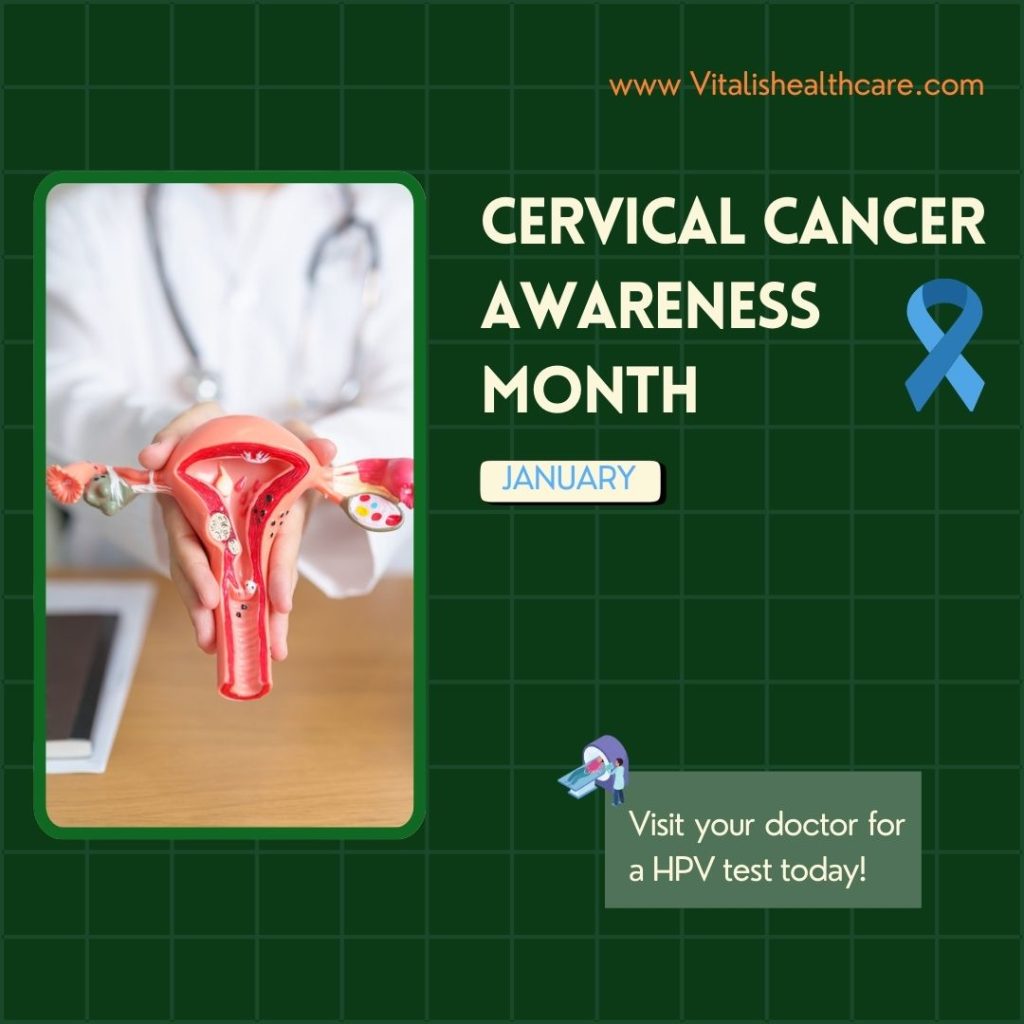According to the World Health Organization(WHO), cervical cancer is the fourth most common cancer in women globally with about 660,000 new cases and around 350,000 deaths in 2022. Its incidence and mortality rates have been reported to be higher in older women and when corrected for hysterectomy status, age specific mortality rates are highest for black women aged 85 years and older.
Cervical Cancer is often perceived as primarily affecting younger women, mainly because it is commonly associated with HPV (Human Papillomavirus) infections that are more prevalent in sexually active younger populations. This can lead to the misconception that older women are not at risk. However, this is not the case, as cervical cancer can develop in older women who may have been exposed to HPV years earlier.
Causes Of Cervical Cancer
Cervical Cancer usually develops slowly and over many years. Before turning into cancer, the cells in your cervix go through a lot of changes. The once normal cells start to appear irregular or abnormal. These abnormal cells may go away, stay the same or turn into cancer cells. It usually takes several years for normal cells in the cervix to turn into cancer cells.
You are likely to get cervical cancer if:
- You have had vaginal, vulval, kidney or bladder cancer in the past.
- You smoke
- You have a weakened immune system (which could be caused by an immune system weakening disease like HIV or AIDS).
- You have given birth to multiple children or had children at an early age (under 17 years old)
HOW CERVICAL CANCER CAN BE DETECTED IN OLDER WOMEN
Cervical Cancer screening still matters for older women for several important reasons such as:
- Early Screening and Detection: Early screening allows for the early detection of any abnormal changes in the cervix, which can be treated before they develop into cancer. Early intervention can significantly improve treatment outcomes.
- Awareness and Education: Continuing to emphasize the importance of screenings help raise awareness about cervical health and encourage older women to take charge of their health.
- Access to Care: Health care providers can offer additional support and resources, ensuring that older women have access to comprehensive care.
- Regular Screening: As women age, the risk of developing cervical cancer can still persist, especially if they have not been screened regularly in the past. Even those over 65 who have had previous screenings may still be at risk. This is why regular screening is key to early cervical cancer detection.
CERVICAL CANCER SCREENING GUIDELINES FOR OLDER WOMEN
According to the American Cancer Society(ACS), the recommended cervical cancer screening guidelines for older women are as follows:
- Age 65 and older: If you have had regular screening and normal results, you can stop cervical cancer screening. However, if your recent test results were abnormal or you have not been screened regularly, you may need to continue screening.
- The ACS recommends starting cervical cancer screening at age 25 with an HPV test. After that you can:
- Have an HPV test every 5 years: This test checks for the presence of high-risk types of human papillomaviruses that are known to cause cervical cancer.
- Have a HPV/pap test every 5 years and a Pap test every 3 years: The HPV/Pap test combines both the HPV and Pap test. The pap test(also known as Pap smear) is a test that involves collecting cells from the cervix to look for any abnormal changes. It can detect precancerous conditions and cervical cancer at an early stage. The Pap test is usually recommended every 3 years for women aged 21 to 6
The frequency of Cervical Cancer screenings and the types of tests recommended depend on your age and health history. If your screening tests are abnormal, your doctor may perform additional tests, such as a biopsy.
BARRIERS TO CERVICAL CANCER SCREENING FOR OLDER WOMEN
Older women may face some barriers that may prevent them from getting screened for Cervical Cancer. Some of these barriers include;
- Cultural Beliefs: Cultural attitude towards health and illness may influence a woman’s decision to seek screening. In some cultures, discussing reproductive health may be stigmatized.
- Access to Healthcare: Limited access to healthcare facilities, transportation issues or financial constraints can make it difficult for older women to get screened.
- Lack of Awareness: Some older women may not be aware of the importance of regular screenings or may not understand the screening guidelines.
- Fear and Anxiety: Concerns about the discomfort of the screening process or fear of receiving a cancer diagnosis can deter women from seeking screenings.
- Health Conditions: Chronic health issues or disabilities may make it challenging for older women to attend appointments or undergo screenings.
Addressing these issues through community support, education and accessible health care services is essential to encourage regular screening among older women.
At Vitalis healthcare, we know that facing cervical cancer can feel overwhelming, but you or your loved one don’t have to go through it alone. Our compassionate team is here to wrap you in care and support in your own home. Do not hesitate to reach out and learn more about how we can assist you.
hone Number: 240.716.6874
Email: info@vitalishealthcare.com
Location: We provide our services in every county in the State of Maryland, United States of America.
Office Address: 8757 Georgia Avenue Suite 440 Silver Spring, MD 20910


